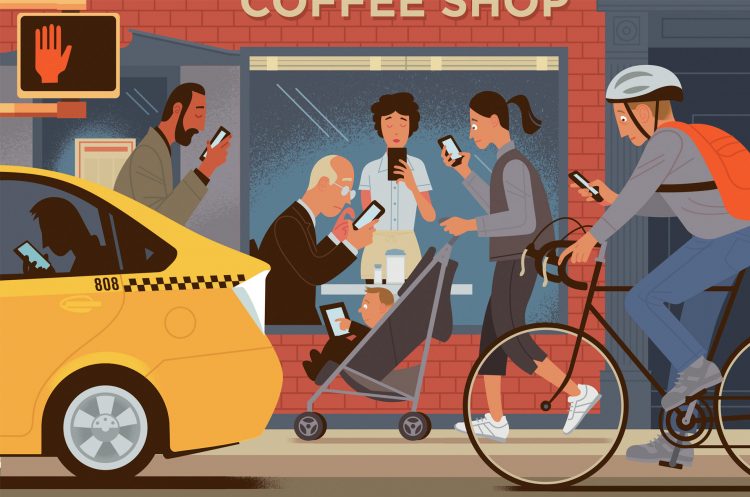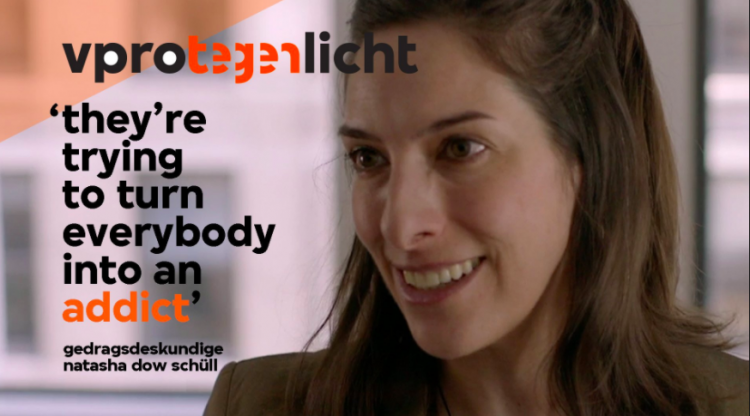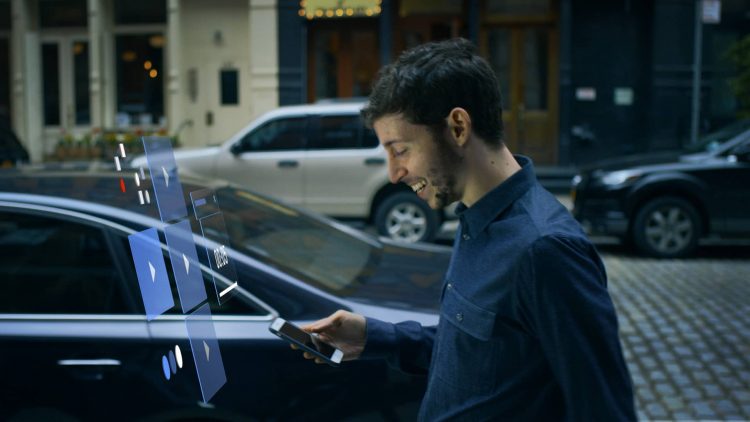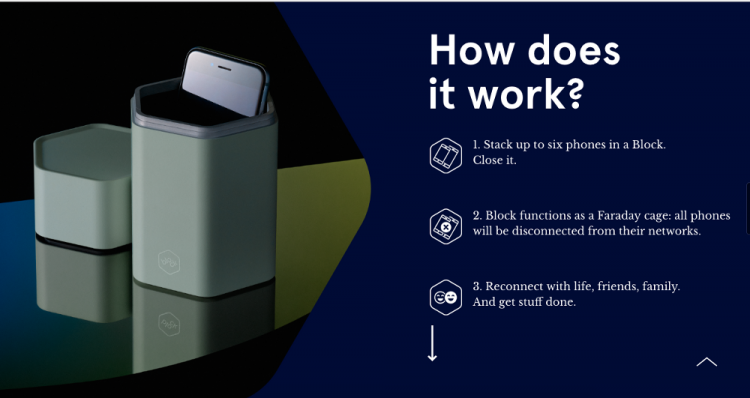Your likes, passions and habits are best known by people you’ve never met. They have the power to read your mind, mold your thoughts, and determine where you spend your hard-earned euro’s or dollars. They’re the capitalistic kings of the new digital age – the online persuaders. Every day, billions of people around the globe are transfixed by their computers, tablets and smartphones:
‘your phone is like a slot machine, you never know if you’re gonna strike gold and win.’

(photo – paul rogers – nytimes)
All the while, their online behaviors are being monitored, studied, and interpreted for the benefit of hugely profitable business interests. Consumerism is no longer driven by roadside billboards and 30 second television advertisements. Every click of the mouse can help to determine your next purchase, shape the cultural perception of an important issue, occupy every moment of our free time, direct social discourse, or even influence the outcome of a presidential election.
The biggest psychological experiment ever is being conducted, and we’re all taking part in it: every day, a billion people are tested online.
Which ingenious tricks and other digital laws ensure that we fill our online shopping carts to the brim, or stay on websites as long as possible? Or vote for a particular candidate?
The bankruptcies of department stores and shoe shops clearly show that our buying behaviour is rapidly shifting to the Internet. An entirely new field has arisen, of ‘user experience’ architects and ‘online persuasion officers’. How do these digital data dealers use, manipulate and abuse our user experience? Not just when it comes to buying things, but also with regards to our free time and political preferences.
Aren’t companies, which are running millions of tests at a time, miles ahead of science and government, in this respect? Now the creators of these digital seduction techniques, former Google employees among them, are themselves arguing for the introduction of an ethical code. What does it mean, when the conductors of experiments themselves are asking for their power and possibilities to be restricted?

What Makes You Click is both a fascinating psychological study and a gripping cautionary tale. The filmmakers navigate these uncharted new realities from an informed and probing point of view, and introduce a series of dilemmas our society is likely to grapple with for many years to come – and they’re the subject of this new documentary from the renowned Dutch VPRO Backlight series. (source; topdocumentaryfilms.com)
The film’s talking heads are; Bart Schutz, Natasha Dow Schüll (anthropologist), James Williams (persuasion technology researcher), Pepijn Rijvers (chief marketing officer Booking.com), Timothy Prescott (political data analyst) and Tristan Harris (user experience designer ‘Time Well Spent’ movement) Watch in full, below:
What makes you click (47:05) (Dutch)
What makes you click (47:05) (English subtitles)
VPRO Backlight becomes VPRO Broadcast, the international page for our new YouTube channels! Read more

Addicted to Your iPhone? You’re Not Alone
Whether you’re killing time in line at in bar, restaurant, home or scrolling through an endless meme stream on Facebook, your smartphone is trying to seduce you. Former Google employee Tristan Harris felt something needed to be done to combat tech designers’ relentless efforts to influence our behavior. Special correspondent Cat Wise talks to Harris as part of a collaboration with The Atlantic – The Binge Breaker – theatlantic.com
Tristan Harris believes Silicon Valley is addicting us to our phones. He’s determined to make it stop. Watch the PBS newshour report below;

In the Attention Economy, technology and media are designed to maximize our screen-time. But what if they were designed to help us live by our values? – This Panda Is Dancing (03:48)
Time Well Spent
Demanding a new kind of design for technology optimized to help us spend our time *well*, not maximize the time we spend. Learn more here

Connected, but alone?
As we expect more from technology, do we expect less from each other? Sherry Turkle studies how our devices and online personas are redefining human connection and communication — and asks us to think deeply about the new kinds of connection we want to have.
The Innovation of Loneliness
What is the connection between Social Networks and Being Lonely?
The Innovation of Loneliness (04:28)
The Power of Off
Our reliance on technology is rapidly changing how each of us experiences life. We’re facing new issues and difficulties, we’re encountering new emotional triggers, and we’re relating to each other in new ways. As Dr. Nancy Colier writes, “How we spend our time, what motivates us, and what we want are all are on a radical course of transformation.” The promise of technology is that it will make our lives easier; yet to realize that promise, we cannot be passive users—we must bring awareness and mindfulness to our relationships with our devices.
Order the book here, and watch Nancy Colier – “THE POWER OF OFF” Interview NBC Connecticut video here

We live in hyper connected times.
Meet Block.
Block helps you break away from the constant distractions of your phone. It blocks all connections, enables you to be present in the moment – and looks pretty amazing. Get first in line to own some post-digital luxury – Pre-order here
More
- War Goes Viral How social media is being weaponized across the world
- Going for broke – Professor says Vegas gambling machines designed to get people to ‘play to extinction’
- 60 minutes – Slot machines: The big gamble Lesley Stahl reports on the debate over new slot machines and gambling addiction
- Hooked on Our Smartphones – nytimes.com
- How Social Media Got Weaponized—War in the Digital Age
- Stefan Sagmeister: The power of time off
- Tristan Harris: How better tech could protect us from distraction
- Science Of Persuasion – Dr. Robert Cialdini and Steve Martin, CMCT
- User experience tutorial: How people read on the Web
- Judson Brewer: A simple way to break a bad habit
- Addiction by Design: Machine Gambling in Las Vegas
- Bart Schermer – Data en Privacy
